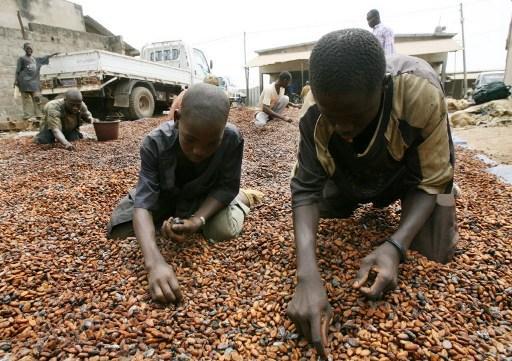Multinationals must be held responsible for the abuses of the cocoa sector, such as child labour, deforestation and poverty, together with the producers, according to the 2020 Cocoa Barometer.
"Large companies, at the end of the chain, must also be held responsible for working conditions in the sector and its impact on the environment," the 2020 Cocoa Barometer - established every two years by an international consortium of NGOs and civil society associations - recommended on Monday.
Twenty years ago, the cocoa sector formally promised to ban child labour. Over the past ten years, however, child labour has actually increased by 14 percentage points in the Ivory Coast and Ghana, the world's largest cocoa producers, according to a study released by the University of Chicago in October.
The various sustainability initiatives are voluntary and there are no constraints to reach the set objectives, Oxfam Belgium pointed out. "However, it is the producers, at the bottom of the scale, who lose their sustainability premiums as soon as they are in breach of the certification rules," the organisation said.
In order to effectively combat human rights violations in the cocoa sector, the Barometer makes three recommendations, the first of which is to hold the chocolate giants accountable.
While Ivory Coast and Ghana obtained a "living income differential" (LID) bonus in 2019 to stabilise the price of cocoa and increase the income of small producers, the American company Hershey's circumvented the measure by buying some 30,000 tonnes of cocoa on the stock market on 20 November last, at knock-down prices.
"Legislation must call everyone to order, from small producers to large companies," the barometer, which can be consulted as of Tuesday, recommends.
Then, agreements between producing and consuming countries should promote a more transparent and sustainable production chain. At EU level, talks were launched at the end of September between the commission, Ghana, Ivory Coast and producer representatives.
Finally, "a fair price is not a favour but a right," the barometer stressed. "It is also the most effective way to encourage producers to produce sustainably."
The Brussels Times

